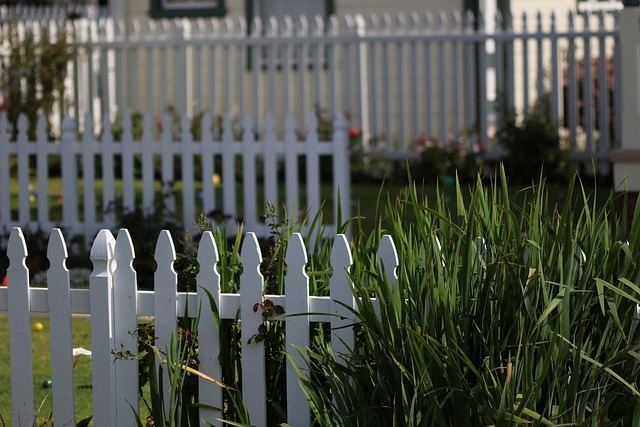In the pursuit of a greener, more sustainable New Bedford, eco-friendly fencing materials emerge as both an aesthetic and practical choice. This article explores the diverse options available to residents looking to enhance their yards while minimizing environmental impact. From recycled plastic to natural wood and innovative composites, we delve into the benefits, types, installation tips, and local resources for these sustainable fences, empowering New Bedford homeowners to make informed decisions that contribute to a healthier planet.
- Eco-Friendly Fencing Options in New Bedford
- Benefits of Sustainable Fence Materials
- Types of Green Fencing for Your Yard
- Installation and Maintenance Tips
- Local Resources for Eco-Conscious Fencing
Eco-Friendly Fencing Options in New Bedford
In New Bedford, eco-friendly fencing options are gaining popularity among residents looking to enhance their outdoor spaces while minimizing environmental impact. One such option is recycled plastic fencing, which is made from post-consumer plastic waste, reducing the need for new materials and diverting them from landfills. These fences offer durability and low maintenance, making them a practical choice for both residential and commercial properties.
Another sustainable alternative is natural wood fencing, particularly when sourced from locally managed forests. New Bedford residents can opt for cedar or bamboo fences, known for their aesthetic appeal and long-lasting performance. These materials not only contribute to the local economy but also support responsible forest practices, ensuring a continuous supply of eco-friendly fencing options for future projects.
Benefits of Sustainable Fence Materials
In an era where environmental sustainability is at the forefront, opting for eco-friendly fencing materials offers a range of advantages. These options not only contribute to preserving natural resources but also enhance the aesthetic appeal of New Bedford’s landscapes. By choosing sustainable materials, residents can create beautiful and durable fences while promoting a greener community.
One significant benefit is their reduced environmental impact. Traditional fencing often involves harmful production processes and contributes to waste. Sustainable alternatives, however, are made from recycled or renewable resources, minimizing the carbon footprint associated with manufacturing. Additionally, these materials can be easily recycled or composted at the end of their life cycle, fostering a circular economy.
Types of Green Fencing for Your Yard
When considering eco-friendly fencing options for your New Bedford, MA yard, there are several green alternatives to explore. One popular choice is natural, organic materials like bamboo and hemp, which offer both aesthetic appeal and environmental benefits. Bamboo fences are known for their strength and durability, making them a long-lasting and sustainable option. Hemp fences, on the other hand, provide a unique texture and a natural, rustic look while also being highly renewable.
Another type of green fencing to consider is recycled plastic or composite materials. These products are made from repurposed plastic bottles or other waste materials, reducing the environmental impact of traditional fencing. They come in various styles and colors, allowing for customization to match your yard’s aesthetic. Additionally, recycled fences require minimal maintenance, ensuring long-term savings on upkeep costs.
Installation and Maintenance Tips
When installing eco-friendly fencing materials, it’s crucial to follow manufacturer guidelines for proper placement and support. This ensures the fence stands sturdy against elements while allowing the material to breathe and perform optimally. Regular cleaning with mild soap and water is typically all that’s needed to maintain these fences; avoid harsh chemicals that could damage the natural fibers.
For wooden eco-friendly options, treat the posts and panels with a water-based preservative every few years to protect against rot and insects. Metal fencing requires minimal upkeep, but periodic checks for rust or damage are essential. Stone and composite materials are durable and low-maintenance, needing only occasional cleaning. Regular inspection and prompt repair of any damaged sections will extend the life of your eco-friendly fence.
Local Resources for Eco-Conscious Fencing
New Bedford, MA, is home to a growing community of eco-conscious residents who are looking for sustainable solutions for their homes and yards. Fortunately, local resources offer a variety of eco-friendly fencing materials that not only meet environmental standards but also enhance the aesthetic appeal of properties.
One prominent source for these materials is the city’s own recycling centers and compost facilities. These locations often provide recycled plastic and wood chips that can be transformed into durable and stylish fencing options. Additionally, local farmers and landscape architects are embracing sustainable practices, offering custom-made fences crafted from natural materials like bamboo, cedar, and local hardwoods. This approach not only supports the local economy but also ensures that residents have access to high-quality, environmentally friendly products for their fencing needs.
